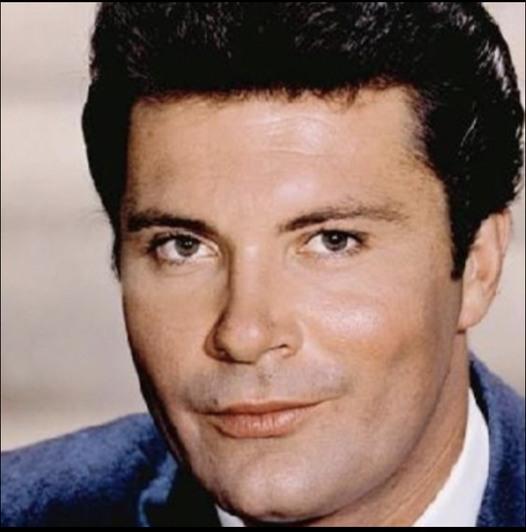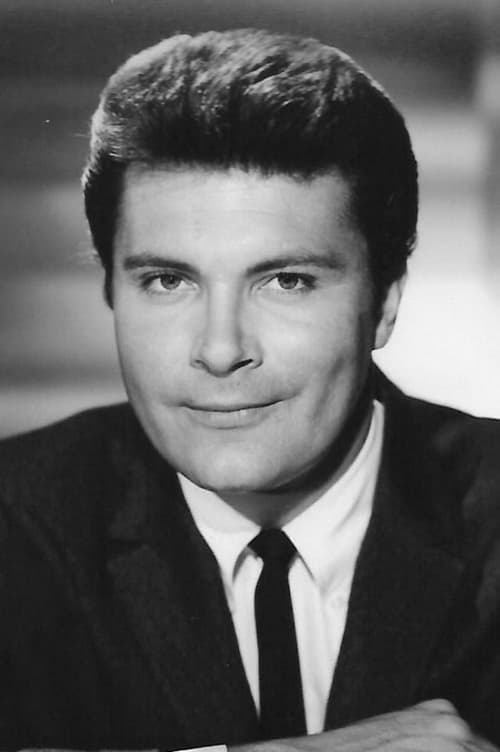Max Baer Jr. remains one of television’s most cherished figures, best known for his unforgettable portrayal of Jethro Bodine on The Beverly Hillbillies. His role in the classic sitcom, which captured the journey of the Clampett family as they transitioned from rural poverty to newfound wealth, left an indelible mark on audiences and continues to be a part of his legacy, even now as he has entered his mid-80s.

When The Beverly Hillbillies debuted in 1962, it was an instant success, skyrocketing in popularity within just three weeks of its premiere. The show quickly ascended to the top of television ratings, dominating the airwaves with its lighthearted humor and engaging storytelling. Over the course of nine seasons and an impressive 274 episodes, the sitcom entertained millions of viewers, becoming one of the most beloved programs of its era.
A significant part of the show’s appeal came from Baer’s portrayal of Jethro Bodine, a lovable yet dimwitted character whose naive enthusiasm and exaggerated Southern drawl made him an instant fan favorite. With his wide-eyed innocence and ambitious yet often misguided aspirations—ranging from wanting to be a brain surgeon to a Hollywood producer—Jethro’s antics provided countless comedic moments. Baer’s ability to balance physical comedy with an undeniable charm ensured that his character stood out as one of the most memorable in television history.
However, the immense success of The Beverly Hillbillies came with its own set of challenges for Baer. Despite his acting talent, he found himself heavily typecast in Hollywood. Casting directors and producers struggled to see him as anyone other than the simple-minded yet endearing Jethro. This typecasting significantly limited his opportunities in mainstream television and film, forcing Baer to explore other avenues to sustain his career.
Rather than resigning himself to being solely recognized as Jethro Bodine, Baer took control of his career in a different way. He shifted his focus behind the camera, where he found success as a filmmaker. One of his most notable achievements was producing and directing Macon County Line, a low-budget film that became an unexpected hit. Released in 1974, the film was a crime drama inspired by true events, and it resonated with audiences in a way few anticipated. With a budget of only $225,000, Macon County Line went on to gross more than $25 million at the box office, making it one of the most profitable independent films of the 1970s. Baer demonstrated his ability to tell compelling stories beyond comedy, proving that he was more than just the actor behind Jethro Bodine.
Building upon his success as a filmmaker, Baer continued to explore business ventures that leveraged his connection to The Beverly Hillbillies. He acquired the rights to the show’s brand and attempted to create a series of themed attractions, including restaurants, casinos, and entertainment centers. His vision was to bring the world of The Beverly Hillbillies to life for fans, allowing them to step into the world of the Clampett family in a real and immersive way.
However, Baer’s entrepreneurial aspirations faced numerous legal obstacles. Various copyright and trademark disputes complicated his plans, delaying or preventing the full realization of his projects. Despite these hurdles, his dedication to preserving the legacy of The Beverly Hillbillies never wavered. He remained committed to ensuring that the show’s charm and humor continued to reach new generations of viewers.
Beyond his career in television, film, and business, Baer’s personal life has also been a topic of public interest. Over the years, he has maintained a relatively private lifestyle, choosing to stay out of the Hollywood limelight. While many actors from his era pursued continuous on-screen roles, Baer found fulfillment in other areas of the entertainment industry. His journey reflects not only his versatility but also his resilience in the face of industry challenges.
One of the most compelling aspects of Baer’s story is how he embraced both the blessings and burdens of playing Jethro Bodine. For many actors, being typecast can be a frustrating limitation, but Baer found ways to turn it into an opportunity. By owning the rights to the Beverly Hillbillies brand, he positioned himself as the guardian of its legacy, ensuring that his character and the show’s influence would never fade from public consciousness.
Even as he aged, Baer continued to be a symbol of nostalgia for classic television fans. His presence at conventions, interviews, and fan gatherings showcased his enduring connection to the character and the people who loved the show. Unlike some actors who distance themselves from their most famous roles, Baer embraced Jethro Bodine’s place in television history. He understood that the role, while initially limiting, ultimately gave him a lifelong identity in pop culture.

To this day, The Beverly Hillbillies remains a beloved show, with reruns still airing and drawing in audiences who appreciate its timeless humor and endearing characters. The show represents a bygone era of television when storytelling was simple, family-friendly, and filled with heartwarming moments. Baer’s contribution to this legacy is immeasurable, as his performance helped define the show’s charm and lasting appeal.
Looking back at his career, Baer’s story is one of reinvention. He proved that an actor’s success isn’t solely dependent on staying in front of the camera. By stepping into directing, producing, and business ventures, he demonstrated that creative individuals could find success in multiple facets of the entertainment world. His journey serves as an inspiration to others facing typecasting or career stagnation, showing that with determination and strategic thinking, one can overcome obstacles and carve out a unique and lasting legacy.
Despite the industry’s evolving landscape, Baer’s work continues to bring joy to audiences. Whether through reruns of The Beverly Hillbillies, discussions of Macon County Line, or the stories surrounding his entrepreneurial efforts, his influence remains strong. His dedication to keeping the memory of the Clampett family alive has ensured that new generations can experience the charm and humor of the show, much like audiences did in the 1960s and 1970s.
As he reflects on his life and career, Baer’s impact on the entertainment industry is undeniable. His portrayal of Jethro Bodine is a testament to the power of television to create enduring characters that resonate across decades. While Hollywood may have initially struggled to see him beyond Jethro, his efforts behind the scenes proved that he was a multifaceted talent with much to offer.

Ultimately, Max Baer Jr. represents more than just a character from a beloved sitcom. He embodies the spirit of perseverance, creativity, and adaptability. His ability to transition from actor to filmmaker and entrepreneur showcases his willingness to embrace change and seek new opportunities, even when faced with challenges.
For fans of classic television, Baer remains an iconic figure, a reminder of a time when television was filled with humor, heart, and unforgettable characters. His work continues to uplift audiences, transporting them back to a golden era of entertainment. Whether remembered as Jethro Bodine, a successful filmmaker, or an ambitious businessman, Max Baer Jr.’s legacy is one of resilience and unwavering dedication to the craft of storytelling. His influence in the industry will undoubtedly endure for generations to come, preserving the laughter and joy that defined his career.





